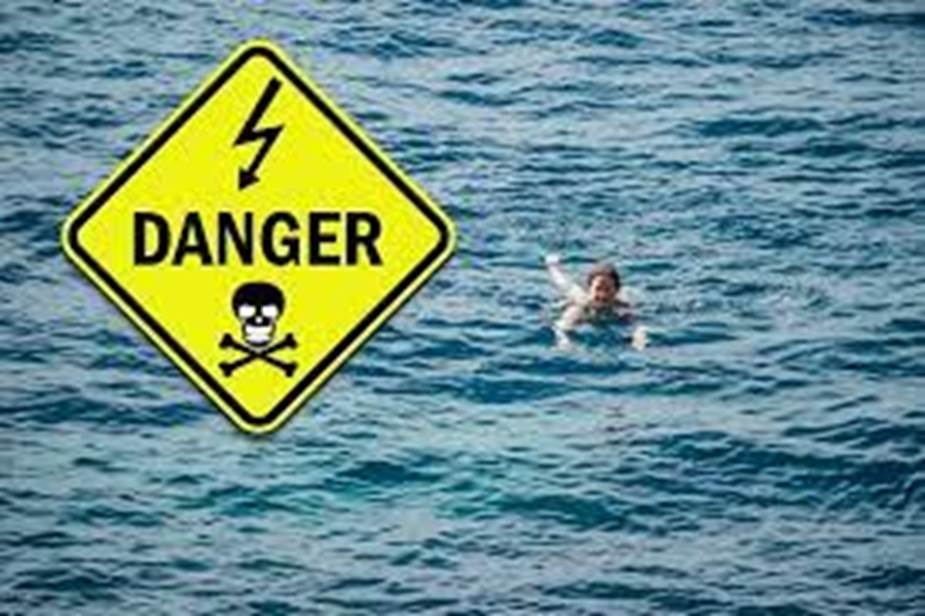
Make Sure Your Pool Is Swimming in Safety
By Paul Netter
When people think of swimming pool hazards, they usually think of drowning — particularly since it is a leading cause of accidental death for children .
But there’s another hazard — often overlooked, silent and potentially deadly — that can lurk for unsuspecting pool owners and swimmers.
It’s electrical and, tragically, it lurked for a 9-year-old girl nearly four years ago in the Sacramento-area city of Citrus Heights when a faulty light fixture electrified the water and led to her death , as it did before her for a 43-year-old man in Palm Springs in 2016 .
Keeping pools and, in turn, their occupants safe from hidden electrical hazards begins with an annual inspection by a licensed electrician or pool contractor that also applies to hot tubs and spas.
These qualified professionals inspect all the working parts to ensure safe and proper underwater lighting fixtures and that life-saving devices like ground fault circuit interrupters (GFCIs) and all grounding and bonding systems are functioning properly to prevent electrical hazards.
“Since swimming pools, hot tubs and spas bring water and electricity close together, these inspections are critically important,” said Ted Gribble, senior manager of Enterprise Risk Management & Public Safety at Southern California Edison. “It is also paramount, though, for everyone’s safety, that pool owners or unlicensed cleaning crews never do these inspections.”
Qualified electricians and pool contractors will not only inspect but, where needed, replace or upgrade electrical devices and equipment to prevent serious injuries.
The leading threats, especially in pre-1980s pools, are faulty underwater lighting , power systems that are not well-grounded or bonded, damaged wiring and defective or nonexistent GFCIs — which should be on lighting, circuits, pumps and heaters in addition to all outlets within 20 feet of the water’s edge.
Permanent or storable pools should never be built or set up under power lines If this exists, there are clearance requirements, and pool owners should consult SCE’s Local Planning at 800-655-4555 or their local inspection agency.
And the recent trend to create ambiance by stringing 110-volt lights over the pool? It should not be done because it is a safety hazard and endangers everyone in the water below them.
Beware the Obscure Electrical Hazard in Lakes, Ponds and Rivers Too
Nothing says summer like swimming and boating.
But, when it comes to enjoying both safely in freshwater lakes, ponds and rivers, nothing is more important than preventing the hidden electrical hazard known as electrical shock drowning.
It happens when leaking electric current from boats, docks and marinas enters the water, passes through the body and causes paralysis that results in drowning. A tragic reminder occurred three years ago when authorities determined that two brothers died in an Arizona lake after electricity entered it because “the victim’s boat had an electrical connection system which was not compatible with the marina’s receptacle.”
These tragedies mainly occur in fresh water because the body conducts electricity better in low-conductivity, high-resistance fresh water than in high-conductivity, low-resistance salt water. This means in fresh water, the body transmits electricity better than the water itself.
There’s a shortage of reliable statistics for electric shock drownings, but at least 100 have been reported since 1986, according to the Electric Shock Drowning Prevention Association .
To prevent these tragedies , safety experts recommend annual inspections of boats, docks and marinas by American Boat and Yacht Council-certified marine electricians as well as the installation of ground fault circuit interrupters on all marinas and docks, plus equipment leakage circuit interrupters on all boats.
Both devices are designed to keep electricity out of the water and safely protect swimmers, who should still always swim with caution around docks and marinas equipped with electricity and around running boats due to the potential for faulty or nonexistent circuit interrupters.
Additional pool, hut tub and spa safety tips include:
- Use portable GFCIs when permanent GFCI-protected outlets are unavailable.
- Keep electronic appliances and devices at least 20 to 30 feet from the water’s edge.
- When possible, use battery-operated appliances and devices near pools.
- Keep high-powered water squirters away from power lines.
- Carry long-handled cleaning tools horizontally and stay at least 10 feet away from power lines.
- If you feel tingling in the water, exit as quickly as possible, avoiding metal ladders and rails.
- Power switches should be labeled so they can be turned off quickly in an emergency.
- Rescuers should never enter the water until the power is turned off.
For more tips on pool safety, visit poolsafely.gov .

